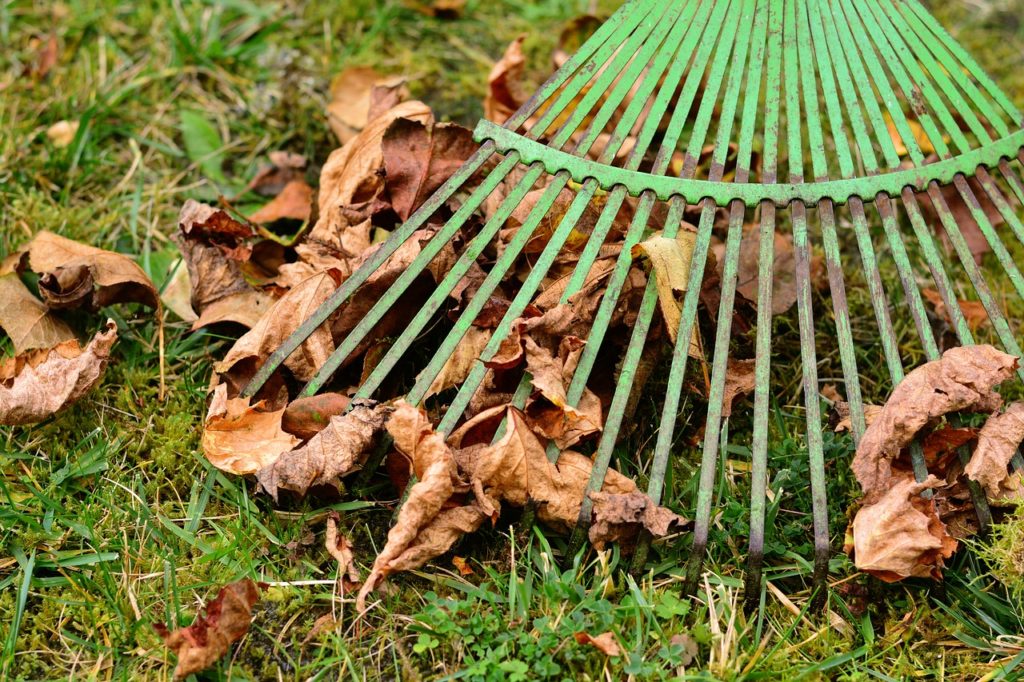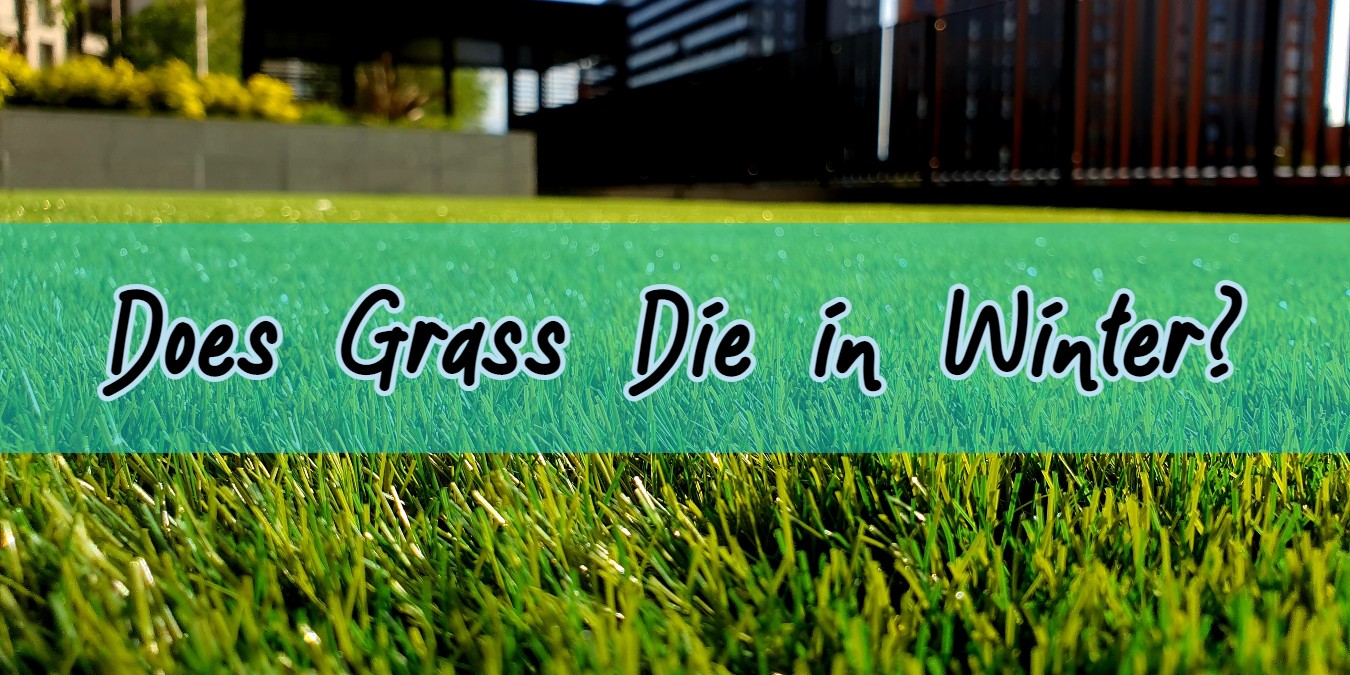Fair few people often wonder whether it is possible for grass to die in winter. It can be said that the type of grass will help answer that question. If you have warm-season grass then you can’t expect it to survive the winter season. The grass may be dying or it may have simply gone dormant. So, the next time you find your lawn or grass brown, you shouldn’t necessarily panic. If it has simply gone dormant then the chances are high that its look will improve when the weather conditions change for the better. Generally, grass can become dormant in the winter but also summer seasons.
This could be caused by several causes. For example, if heat or droughts persist in summer or if the winter is really tough. If the conditions don’t improve, then, unfortunately, your grass will die. However, it is usually a result of prolonged periods of foul weather conditions, e.g. extremely cold winters.
Does Grass Die in Winter? – What are the Possible Causes?
Unless the grass is simply dormant, it can’t be revived when it dies. It is easier to tell whether or not your grass is dead in the summer season. You can do so by simply watering it. Wintertime is not as easy as you generally have to wait the winter out to determine whether or not it can be revived. You will have to wait for spring to determine whether it is dead or if it has just gone dormant. If it is dead then you will have to replant the grass.
Let’s explore some of the reasons why grass could die in winter:
- Not enough snow to act as an insulator. When there is not enough snow to cover the grass then it may die. Also, if the ground freezes, it will affect the grass roots and ultimately kill the grass.
- A fungal disease that may turn the grass pink or gray. The fungal disease normally occurs as a result of snow mold. This happens when snow falls on the ground that isn’t cold yet. The good news is that snow mold can be dealt with if the sun comes out on time or if there is a breeze.
- Rodents such as voles can also lead to grass dying. As they tunnel through your yard, they eat the grassroots and ultimately kill your grass. You can curb this problem by riding your grass of dead grass or fallen leaves that may be used for shelter.
- It is good to plan for soil aeration in the fall to help increase root growth and ultimately help your grass remain as healthy as possible in the winter. If you fail to properly aerate then you could potentially have to deal with dead grass. Ideally, you should aerate on moist soil as opposed to wet soil.
Also Read: How to Keep Ferns Alive in Winter?

Tips to Keep the Grass Healthy in Winter
Now that you have the answer to the question, “Does grass die in winter?” you may be wondering how you can keep it in tiptop condition. Most of the tips apply BEFORE cold snaps start to arrive.
The following tips will help you maintain healthy grass during winter:
- First off, you should know that the worst thing you can do to your grass is to walk on it during winter. This action will destroy the grass blades and reduce any chances of survival for the grass.
- When planting, you should pay attention to the grass type that you choose to plant. Some types fare better in certain climate conditions than others.
- While planting grass, you should consider over-seeding to improve coverage and the overall grass health. The more the better very much applies here.
- You should mow your grass and fertilize it before the winter kicks in. Try not to fertilize late though as you don’t want unabsorbed nutrients promoting mold when the snow starts to fall. Mowing helps remove weeds or other unwanted plants that may foster mold during the winter thus killing your grass. It may also keep away burrowing animals that are attracted to tall grass.
- Consider watering your grass during the winter if it has been over a week since it last rained. This will help keep your grass hydrated and stops it from drying out and dying. It is best to water the grass when the weather is not below freezing or about to get below freezing. Otherwise, you will freeze the grass and ultimately kill it.
- Consider raking to keep your grass vigorous. Not only will raking help remove unwanted leaves and other debris, but it also stirs up the surface soil, which is good for the root system.
- The type of soil you have can make or break your grass in the winter. If you have soil with a high clay content for example, then you should prepare for dead grass. This is because such soil tends to retain a lot more water than the grass needs. If you have soil that does that, then you should consider adding some sand to it to improve saturation.
- Don’t be “salt-happy” near your grass. Too much salt on the grass will affect its root system, potentially introducing disease and ultimately killing it. Watch out for de-icing products with high salt content. If you are to choose a product, go for one with sodium chloride alternatives, like calcium chloride. If you think over-salting has occurred then you should water your grass or lawn heavily when the ground temperatures are above freezing to keep damage to a minimum.
- Avoid piling snow on top of the grass as it compacts the soil, which will ultimately kill the grass.
Types of Grass That Can Thrive Through Winter
If you are scared your grass may die in winter, you should consider durable grass types such as the Perennial Ryegrass, Tall Fescue, Kentucky bluegrass, Creeping Bentgrass, and the Creeping Red Fescue. However, you should also pay attention to the weather conditions after the winter as some types mentioned, such as the Perennial Ryegrass, can’t stand a heavy shade, severe heat, or dry spells.
Wrapping up
Now that you know that grass could potentially die in winter, It is important to plan ahead before winter comes. It is advisable to fertilize it and rid it of any loose leaves or debris that may affect its health. And remember, just because the grass is brown doesn’t mean it’s dead. It may be dormant and if that is the case then reverse weather conditions will improve its health.
You May Also be Interested in: What Do Farmers Do in the Winter?

